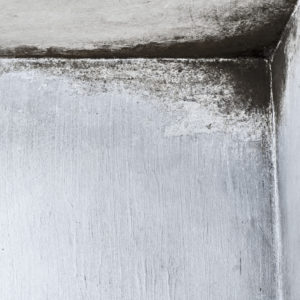October 06, 2014 | Black & Kletz Allergy
 As the temperatures are dropping and the leaves are starting to “fall”, the ragweed and other weed pollen counts are also gradually decreasing, but the mold spores will be a significant trigger of asthma and allergy symptoms in the coming few months for sensitized individuals.
As the temperatures are dropping and the leaves are starting to “fall”, the ragweed and other weed pollen counts are also gradually decreasing, but the mold spores will be a significant trigger of asthma and allergy symptoms in the coming few months for sensitized individuals.
Mold is a fungus which can cause bothersome symptoms in a few different ways:
- Allergic Reaction: Though all of us are exposed to molds, only some of us develop “sensitivity” to them determined by our genetic composition. When a genetically predisposed individual inhales spores from molds, his/her immune system considers them as foreign invaders and manufactures antibodies in an attempt to fight them. These antibodies memorize the particular spores and “attack” them when they are exposed to them again. This reaction causes certain chemicals like histamine to be released into the tissues which cause the typical symptoms of sneezing, stuffy/runny nose, itchy/watery eyes, etc. (Note: If your vision is seriously impaired, it may be a sign on something more severe, and you may wish to consult with a LASIK surgeon in Washington DC.)
- Irritant Reaction: Molds can release substances called volatile organic compounds (VOC’s) which can irritate skin and mucus membranes inside the mouth, nose and eyes resulting in burning sensation, watery eyes, runny nose, scratchy throat and cough.
- Toxic Reaction: Mycotoxins, produced by certain types of molds, in addition to causing irritant symptoms can also lead to flu-like symptoms, fatigue, headache, dizziness, and shortness of breath.
- Infection: Though skin lesions are the most common infectious manifestation, different types of molds also can cause respiratory, gastrointestinal, and neurological disorders.
Molds are found in both indoor and outdoor environments and thrive in high humidity. Moist and decaying leaves on the ground, which tend to peak in the Fall, form a substrate for the mold growth. Damp basements, leaky faucets, wet shower curtains, and wet bathroom tiles also encourage proliferation of molds. Though many mold overgrowths are visible, their spores are microscopic and are air-borne. The most common types of molds that cause human suffering are alternaria, hormodendrum, cladosporium and penicillium.
Most people sensitive to mold spores only exhibit “hay fever”- like symptoms involving the eyes, nose, mouth, and throat. Less commonly, molds also play a role in more serious conditions like:
- Allergic Asthma: In sensitized individuals with a history of asthma, mold spores can induce sudden and severe flare-ups of asthma symptoms which may require emergency treatments and/or cause an increase in the number or dose of controller medications.
- Allergic Bronchopulmonary Aspergillosis (ABPA): It is a hypersensitive reaction to a particular type of mold called aspergillus in the lungs of patients with persistent asthma or cystic fibrosis.
- Allergic Fungal Sinusitis: A chronic inflammatory response of the membranes and tissues inside the sinus cavities can be caused by certain types of molds in susceptible people.
Diagnosis: Mold allergies can be detected either by skin testing or by measuring the amount of specific IgE antibodies in a blood sample by a clinical laboratory. Skin testing is a more sensitive test and is the preferred method used by allergists. A detailed history of the symptoms and their possible triggers in the environment followed by a focused physical examination will help the allergist in determining the type of testing needed to confirm the diagnosis.
Treatment: The first principle in the management of any allergic disorder is to identify the possible triggering and aggravating factors in the environment and to avoid exposure to them to the extent possible. To reduce exposure to the mold spores, the following measures can be quite useful:
- As dampness encourages mold growth, indoor humidity levels should be kept below 50 percent. Avoiding water leaks and running a dehumidifier in damp and musty areas of the house can also inhibit mold proliferation.
- Installing HEPA filters in HVAC systems and changing them periodically will reduce indoor spore counts by trapping them before fresh air is circulated.
- Adequate ventilation of the bathrooms either by running the exhaust fan or opening the windows will reduce mold growth. Keep in mind that by opening the windows, outdoor molds may enter one’s home which can be counterintuitive.
- Proper care of indoor plants such as removing the dead leaves and avoiding standing water can be helpful.
- Wearing a face mask to cover the nose and the mouth before raking leaves and cutting grass will reduce exposure to molds substantially.
- Mold spore counts are usually higher at nights when the atmosphere is cool and damp. Closing the windows will keep the outdoor molds from entering inside one’s home.
Medications like ocular, nasal, and oral antihistamines as well as nasal and inhaled anti-inflammatory drugs can relieve the misery of symptoms to a certain extent. When environmental control measures and medications do not help enough or when the side effects of the drugs are bothersome, a desensitization process (i.e, allergy shots or allergy immunotherapy), which induces tolerance to the offending allergens, can be a long term solution which is highly efficacious.
The board certified physicians and staff at Black & Kletz Allergy have the training, expertise, and decades of experience in the diagnosis and treatment of adults and children with mold and other allergies in a professional, caring, and patient-friendly environment in the Washington, DC, Maryland, and Northern Virginia area.












